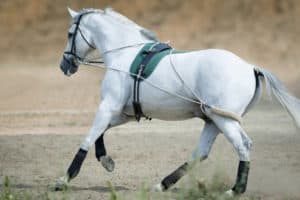
Training Aid Fact and Fiction for Better Riding
Two equine biomechanics researchers share insight on how to properly use equine training aids such as elastic bands, longeing systems, and various rein rigs.

Two equine biomechanics researchers share insight on how to properly use equine training aids such as elastic bands, longeing systems, and various rein rigs.

Learn why your horse might be exhibiting undesirable behaviors and what you can do to change them.
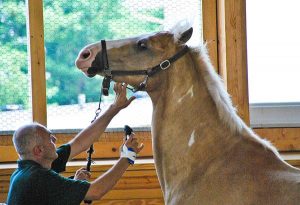
Determine why a horse is head shy, and then use learning principles to reverse the behavior. Learn more in this article from the Summer 2023 issue of The Horse.
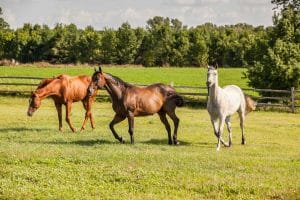
Introducing a horse to a new herd can be stressful, but with careful planning horses can live happily with their pasturemates.

The film, featuring renowned equine orthopedics expert Dr. Sue Dyson, is available for free.
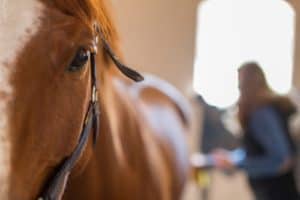
While each horse is different, here are some common behavioral signs that can help you tell if your horse is happy, sick, or painful, as well as keep you safe.

We’ve compiled a science-based list of nonriding activities to help keep you and your horse busy during these cold winter months.

Researcher: Horses only start to crib, weave, or perform other stereotypies in one kind of context: when their environment is suboptimal.

While researchers have used pressure mats for years to visualize the kinds of pressures occurring between a horse’s back and a rider’s seat, the technology is now more accessible.
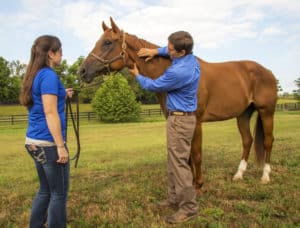
From reinforcing behaviors to reading facial expressions, adopting welfare-friendly handling practices can improve equine well-being and human safety.
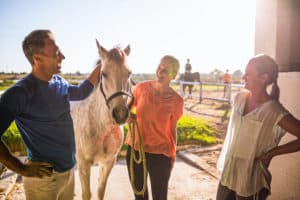
Learn about your horse’s health, behavior, and personality as you acclimate him to a new home, diet, and herd.

Equine welfare researcher Dr. Natalie Waran addresses the importance of studying, measuring, and caring about our horses’ quality of life.

Two sport horse veterinarians have shared how to make smart horse health decisions at competitions. See if you select the right paths toward a healthful and successful showing experience in these sticky scenarios.

Ready to ride more? Do you want to improve your horse’s health? Find out how to make your resolutions stick.

Smartphones and social media make sharing negative moments with horses—in context or not—easy. How the general public responds can have a lasting impact on the equine industry.

Daylight cycles influence physiology and behavior rhythms. And, as an Irish researcher recently reported, understanding how horses respond to these cycles can help you better manage your animals.
Stay on top of the most recent Horse Health news with
© 2022 Copyright Statement dolor sit amet, consetetur sadipscing User Terms, sed diam nonumy eirmod tempor invidunt ut labore et dolore magna aliquyam erat, sed diam voluptua. At vero eos et accusam et justo duo dolores et ea rebum. Stet clita kasd gubergren, no sea takimata sanctus est Lorem ipsum dolor sit amet.
"*" indicates required fields